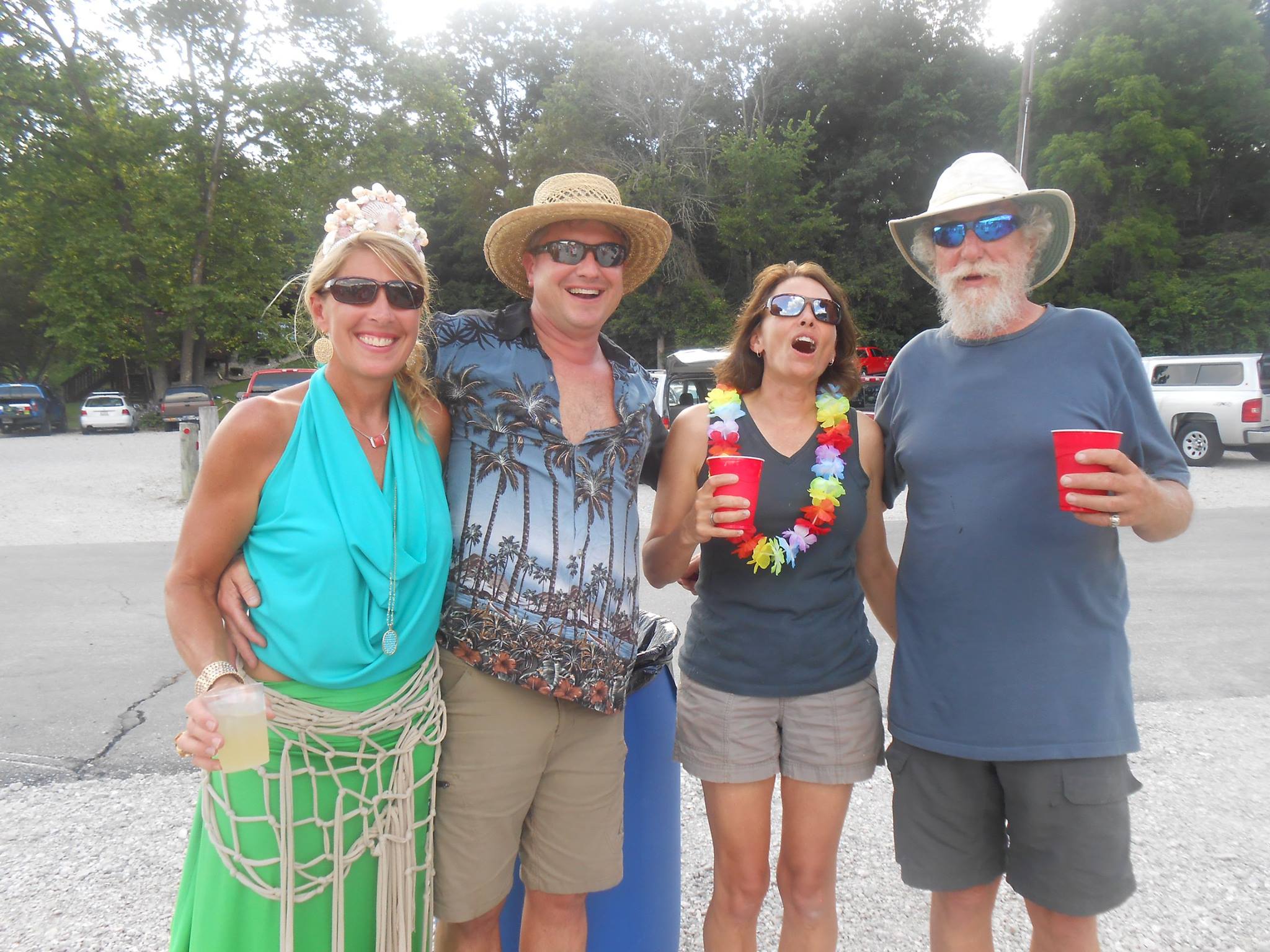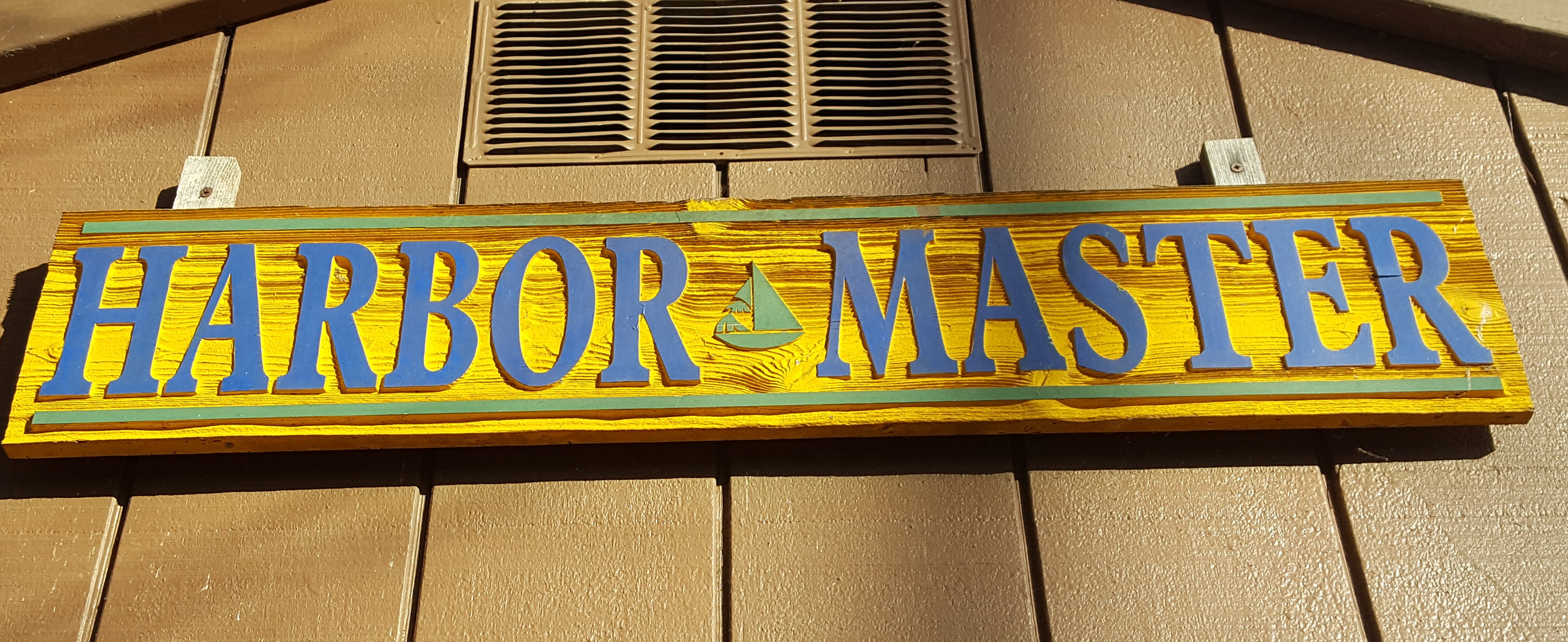-
Spring is almost here and the club will be getting busy! People will be unwrapping their boats, cleaning them and getting them ready for the upcoming sailing season. Services at the club will be starting back up next month, but in the meantime please place your trash in the dumpster, and help keep our club clean.Have a great St. Patrick’s Day,Mark WalkerCommodore
-
No Article Submitted
-
Winter is halfway over and spring is almost here. As the weather warms I have noticed the club getting busier and busier every weekend it’s good to see a lot of familiar faces.
With spring approaching so are spring rains. Remember that if you have canoes kayaks or small boats near the water line and are not tied down they will float away when the water rises. This year when launching or retrieving your Boat I would like to see the buddy system. I know all of you were capable sailors but we lost the capable sailor last year doing the exact same thing.
Let’s talk Docks.
If you were keeping your same slip assignment from last year you can put your boat in anytime you like. If you have put in for a change of slip please wait till your assigned your new slip before putting your boat in the slip.
This year I will be focused on replacing bad boards on D dock. I am looking for a few good members to help out at the work party with replacing some of these boards. If you were on A,B or C and have boards that are in dire need of replacement please let me know and I will try and get on them as soon as possible.
Trailer parking lot will open around April 15 please refrain from placing your trailers up there before that date. If you need to get into the trailer parking lot for some reason please be careful it’s very muddy don’t get your vehicle stuck in the mud. Also in the upper trailer parking lot there are a few trailers and a boat on the trailer if you own one of these trailers or the boat or know someone that does please let them know that they will be removed from the property this year if not properly stickered.
The work-lot by the harbormaster shed also needs to be emptied by April 15. This area is for people who wanna work on their boats or work on their trailers. It is not permit parking. If you need to put your boat in the work lot and work on it please let me know the dates that it’s going to be in there and there should be an end date at some point in time. Once again this lot is NOT permanent parking.
Dennis Robertson
Harbormaster
-
How to Race Your Cruiser: The Boat
There’s no reason you can’t be both a cruiser and a racer. Better yet, you don’t need to have a two-boat program either. Quantum’s Jay Sharkey details how to optimize your current boat to make you competitive in the performance cruising circuits.
Everyone loves to sail fast, even the hard-core cruiser. When the racing bug bites and it’s time to dip your toe in the local race circuit, there are hundreds of thousands of sailboats marketed as dual-purpose racer/cruisers that fill marinas around the world. These boats tend to be neither overbuilt offshore passage-makers, nor stripped-out high-tech racing machines, but they can fill both roles for most sailors’ needs.
However, there’s no need to trade in your trusty cruiser or buy a second boat, there are a number of things you can do to optimize your current boat to be competitive in performance cruising circuits and still be able to enjoy a comfortable sunset sail.
Whether it’s your current cruising boat or a new racer/cruiser, they can be optimized for racing or cruising without huge expenses or modifications. In this piece, we’ll examine the racing part of the equation and how to best set up your boat for the racecourse.
Optimizing Your Sails
The most obvious place to start is with a new set of sails. Many cruiser/racers today come with OEM sails. Being a line item that affects the overall cost of the boat, these OEM sails are usually inexpensively constructed out of cross-cut Dacron panels (the standard since the Nina raced the Pinta and Santa Maria across the Atlantic). Not much consideration is given to their use. These low-tech sails tend to lose their shape after a few years. Even though they appear to be working, they lose efficiency, keeping the boat from performing at its full potential.
The most common upgrade is to a radial sail. The design technique allows sail designers to save sail weight by assembling them in a way that orients the sailcloth to the direction of the loads, allowing for less material use in the “unloaded” direction. Radial sails also have more shapeable panels in their construction, giving the designer more room to fine-tune the finished flying shape.
At the high-end of the technology scale are Membrane (“string”) sails, such as Quantum’s Fusion M™ product line, where the sails are custom-engineered for the load paths. Fusion M™ sails are built for both racing and cruising applications with options such as double-sided taffetas and light-skin laminates to increase their longevity and long-term shape retention.
Once you’ve decided to upgrade your inventory, there are a few things to discuss with your sailmaker, such as the type of racing you’re planning to do (inshore vs. offshore) and whether your sails will be used for both racing and cruising. These details are important because they allow your sailmaker to custom-tailor your inventory for your needs. (Your sailmaker will also be an important ally in tuning your mast and rigging appropriately, as well as helping set up your boat to get the most out of your sails.)
Optimizing Your Rigging
Upgrading your sail inventory is just the first step. You may need to make other modifications to take full advantage of your new sails’ performance. Higher-tech sails stretch less than the cross-cut Dacron variety, so it’s important to make sure the lines controlling them are as equally stretch resistant.
Jerome Sammarcelli, owner of Sailutions, a Marina del Rey-based sailboat optimization company, suggests making the change to Dyneema-cored lines. They’re not only stretch resistant, they’re also lighter aloft. “Owners making the switch should consider going to the smallest diameter lines that will still work with their current deck hardware,” says Jerome. “The weight savings aloft can add up fast, creating the opportunity to take advantage of a righting moment, which was previously not there.”
Optimizing Your Electronics
Along with sails and rigging, optimizing your electronics will help you improve your racing performance. The most basic modern electronics package will usually have the essentials: wind speed/direction and boat speed.
Optimizing Your Boat
Finally, the boat itself can be optimized for racing with a few tweaks: lightening your boat as much as possible is the cheapest and easiest first step, just make sure not to violate any rules about removing standard equipment like locker doors and cushions. Remove all extra tools, spares, and any other items you won’t need to race (investing in a dock-box will give you a place to store things, like your barbeque and water toys, while you race for the day).
Make sure all water tanks are empty. Stow all gear as close to the middle of the boat and as far down as possible. If you have a fixed propeller, switching to a folding prop will also make a big difference (at the expense of maneuverability under power), as will fairing the keel and rudder. The idea is that the smoother the flow across the bottom, the faster the boat will go.
Ready, Set, Race!
Taking the leap from cruising into racing doesn’t have to be intimidating. By following these steps, you’ll see a definite jump in your boat’s performance.
Now comes the fun part – get out there and mix it up! Good luck, and welcome to your new addiction: sailboat racing!
Bob Hickok,
Racing
-
Welcome to two new members in 2018.David and Sandy Berry of Indianapolis, sailing a Catalina 22.Andy and Margie Cockshott along with Iain, Jenny and Peter from Indianapolis sailing a Precision 18.Most of you have sent in your annual dues and slip fees for 2018. Decals, keys if requested, and new labels for the back of your membership cards have been mailed out to you. If you don’t receive those within 7-10 days, please notify Jane at 317-575-0937.The Harbormaster will have all of your requests in his hands by 3/13 and will then begin the process of assigning slips for 2018. Results will be posted online and at the club, hopefully by early April.Please note on the label for the your membership card that Eagle Creek Sailing Club is a member of three organizations:Inter-Lake Yachting Association, Yachting Club of America and U.S. Sailing.Our club pays an annual fee for these memberships which then allows each of us reciprocal privileges at other member clubs throughout the US. For example, I-LYA has 45 clubs, YCA has over 700 clubs across America and U.S. Sailing is the national governing body for the sport of sailing with its mission to provide leadership for the sport of sailing in the US and it can provide a great deal of support to our club and individual members.Also please note that those labels (about 70) that were mailed prior to 2/15 were incomplete in that YCA was not listed. We have corrected labels for you and will see that you receive them.Our AED unit has remained in it’s location on the east side of the racing shed. We have monitored the status of the battery throughout the winter months and everything remains operational.Jane and ChristyMembership Chairs
-
Safety & Education
The ECSC Junior Sailing team has been working very hard this off season, and are looking forward to the new season that starts in April. They are all itching to get back on the water as soon as possible. We have several new sailors on the team and they are getting into the workout and strength building routine to be ready for spring. It is amazing how they work to be at their best. The 2018 season should be very productive for the club and the junior team! Can’t wait!
We are getting a high volume of interest in the upcoming ECSC Junior Sailing Camp which is in the end of June! If you have kids who are interested please get them signed up fast because spots are filling quickly! This camp has always been a ton of fun for the kids involved, and they come back year after year. Also, it is a great way to get kids interested in sailing and grow the sailing community! The majority of our Junior team has participated in the camp and are now great racers! The camp is a busy two weeks for our club and we are looking forward to another great year! Here is a link to camp the camp registration page.
Chuck Lessick,Safety and Education -







